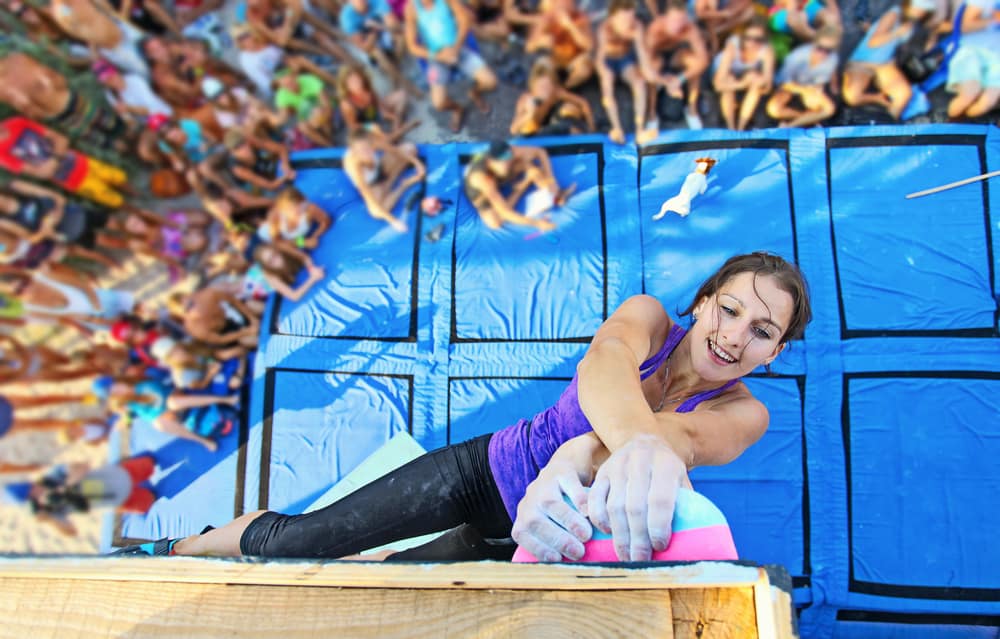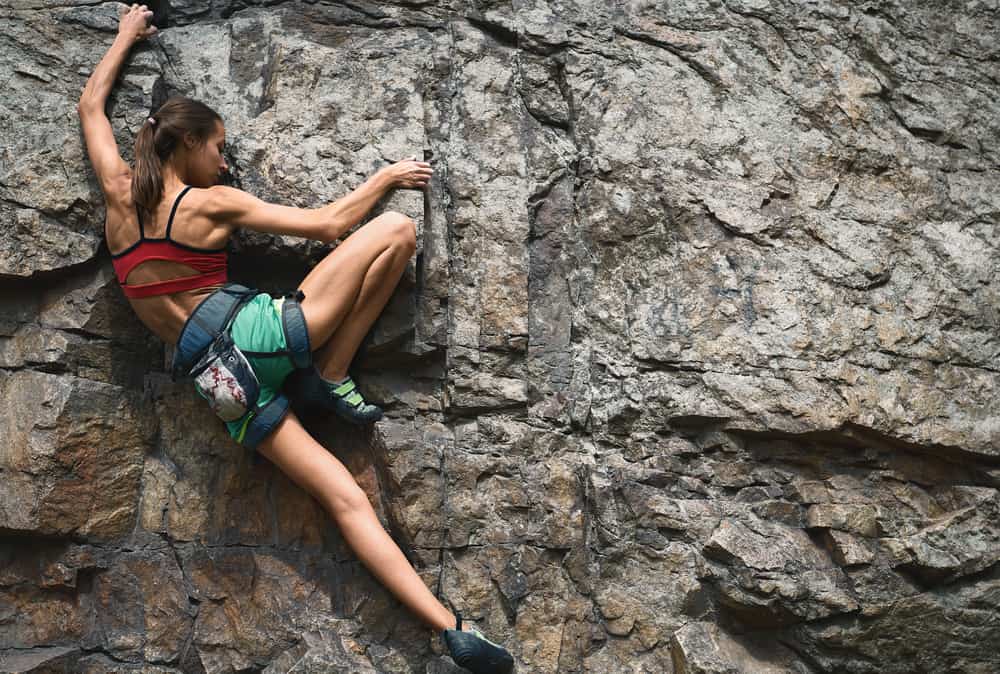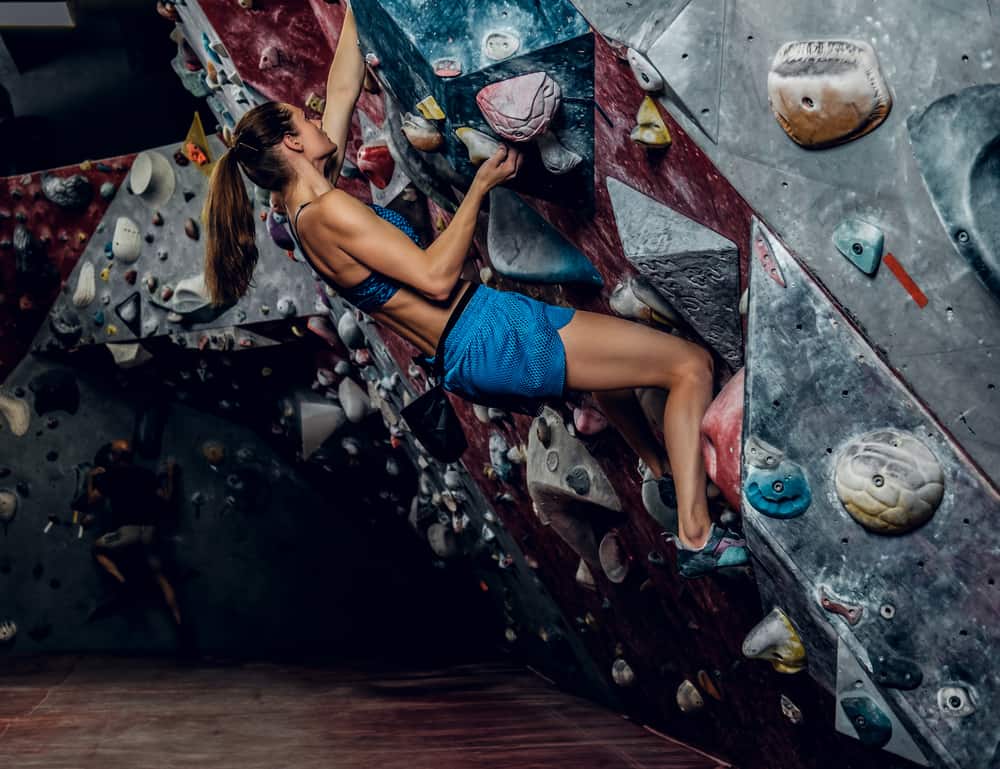Climbing competitions can be a lot of fun to watch. They can also be a great way to learn new techniques and to see how you stack up against other climbers. If you are interested in participating in a climbing competition, here is some information on how they work.
Most climbing competitions are held indoors on artificial walls. There are two types of matches: lead and bouldering. In a lead competition, the climbers start at the bottom of the wall and climb as high as they can, clipping their rope into quickdraws.

The first climber to reach the top of the wall wins. In a bouldering competition, athletes compete on a series of small boulders that are usually less than four meters tall. They are allowed three minutes to climb each boulder and the highest point reached is scored.
Table of Contents
How Are Climbing Competitions Scored?
According to the point-based scoring system, the climber who successfully makes it to the top of the wall is awarded 10 points. The climber who finished in second place receives nine points, the climber who finished in second place in tenth place receives only one point, and so on.

Climbs that are completed in the shortest amount of time possible are rewarded with additional points. This ensures that the competition is conducted fairly and that the prize is awarded to the climber who achieved the highest overall score.
How Much Do Competition Climbers Make?
As a new sport, competitive climbing has few professionals. Famous climbers can make a good living from the competition. Most competitive climbers work during the day and climb at night. This shows that anyone with talent and dedication can play. Anyone can enjoy rock climbing.
Most climbing competitions take place over two days. The first day is called the qualifier, and all competitors climb the same route. The goal is to get to the top of the way without falling. The climbers are judged on their technique, and the top six from each qualifying round move on to the finals.

The second day of the competition is when the finals take place. The finalists climb a different route and, again, are judged on their technique and how well they perform. The winner is the climber who makes it to the top of the way in the shortest amount of time.
What Is a Respectable Climbing Grade?
A good climbing grade is crucial because it signifies that a climber has achieved a high level of mastery in their sport. It takes a lot of dedication and hard work to achieve a grade of 5.14d, so climbers who have accomplished this are to be respected.

There are many opinions on a good climbing grade, but most climbers would agree that a V16 or 5.14d would be at the top of the scale. Anything beyond this is considered to be in the realm of superhuman ability.
A V16 grade means the climber has completed a challenging route, and only a few people worldwide can do this. A 5.14d rise signifies that the climber has achieved an elite climbing skill level. Those who have climbed at this level are some of the best in the world.
Can Rock Climbing Be Competitive?
Rock climbing is a sport that many people participate in for leisure, but there is also a competitive side to it. Climbers who compete in events often look to test their skills and see how they compare to other climbers. These competitions can be very challenging and often require climbers to complete difficult routes in a short amount of time.

There are many different ways to get involved in competitive rock climbing. There are several other competitions that climbers can enter, and often the best way to find out about these is through word-of-mouth or by searching online. Several organizations offer competitive climbing, so climbers can choose which one they want to be a part of.
Rock climbing is mentally challenging. Successful climbers push themselves mentally and physically. They need a solid mindset to overcome climbing challenges. Rock climbing is physically demanding. Climbers must be fit and have the stamina to compete.
How Do You Win Rock Climbing?
Rock climbing competitions require organization. Knowing and using the necessary routes is needed. A competitive strategy is also essential. Some climbers start slowly, but others jump right in. Use your chosen plan confidently.
Another critical factor in winning a rock climbing competition is your equipment. Make sure you are using gear that is in good condition and fits you correctly. You don’t want any surprises during the match, mainly if they cause you to lose time or make it more challenging to complete the route.
Finally, be sure to stay focused during the competition. It can be easy to get overwhelmed or distracted by the other climbers, but you need to stay focused on your climb. Remember why you are there and what you need to do to reach the finish line.

